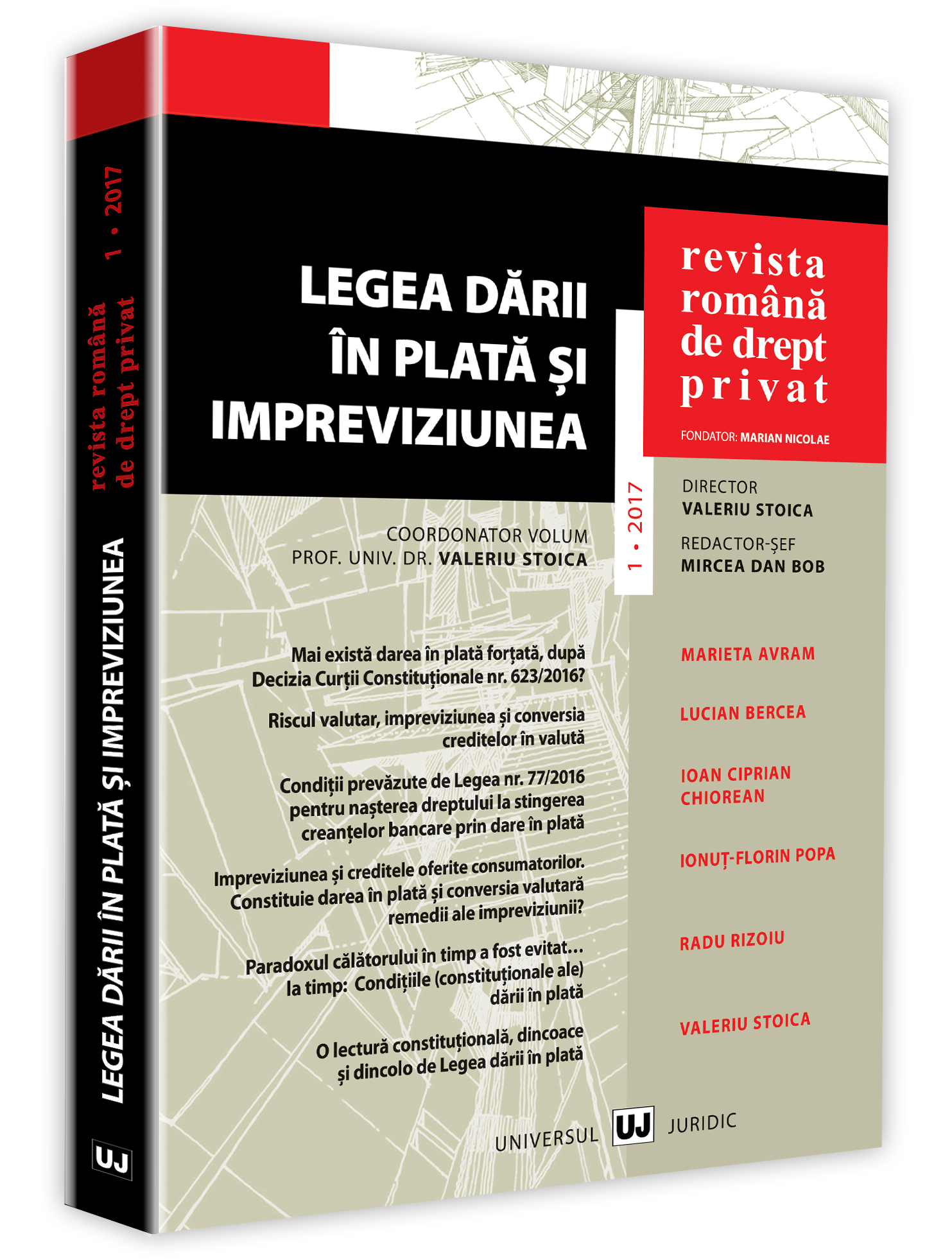Impreviziunea şi creditele oferite consumatorilor. Constituie darea în plată şi conversia valutară remedii ale impreviziunii?
Hardship clause and the loans granted to consumers. Do the giving in payment and the foreign currency conversion represent remedies of the hardship clause?
Author(s): Ionuţ Florin PopaSubject(s): Law, Constitution, Jurisprudence
Published by: Universul Juridic
Keywords: loans granted to consumers; hardship clause; giving in payment; foreign currency conversion; contractual imbalance; remedies; Law regarding the giving in payment; Draft law regarding the conversion;
Summary/Abstract: The hardship clause and the foreign currency conversion are increasingly invoked as remedies of an alleged or actual contractual imbalance, especially in the context of the loans granted to consumers. Law no. 77/2016 regarding the giving in payment of some immovable property for the purpose of extinguishing the obligations assumed under loans and the Draft law regarding the conversion (of amending the G.E.O. no. 50/2010 regarding the loan agreements for consumers) passed through the assessment procedure of the constitutionality. The result of this constitutional review radically changed the coordinates of enforcing the first legal act and left to the discretion of the courts the possible ruling of the remedy of the foreign exchange conversion. This result shall lead to the creation of a theory of hardship which is significantly different from the theory enshrined by the doctrine and case-law, but which faces the benefit of the constitutional interpretation. The study below examines two topics. The first topic aims at the centrifugal- European view which the Constitutional Court has been proving for several years and which is harder certified by some professionals in the field, as it is resumed as well, in the context of the invoked non-European nature of Law no. 77/2016. The second topic aims at the current status of the remedies applicable to the contractual imbalance which affected the loan agreements provided to consumers. The first part involves a series of arguments (which shall be developed in a subsequent study) related to the disinterest of the Constitutional Court in protecting the significance which art. 148 paragraph (2) of the Constitution should have. The second part aims at some utilitarian reading of the Decision no. 623/2016 of the Constitutional Court and refers to the current scope of the giving in payment, to the theory of the hardship clause as it is reexamined by the constitutional judge, within the limits of the civil judge in the assessment of the hardship clause and of the remedies for it, as well as to the comprehensive relation which the new way of enforcement of Law no. 77/2016 has been maintaining with the theory of unfair terms (already enough complicated in the matter of consumption loans).
Journal: Revista Română de Drept Privat
- Issue Year: 2017
- Issue No: 01
- Page Range: 104-128
- Page Count: 25
- Language: Romanian
- Content File-PDF

